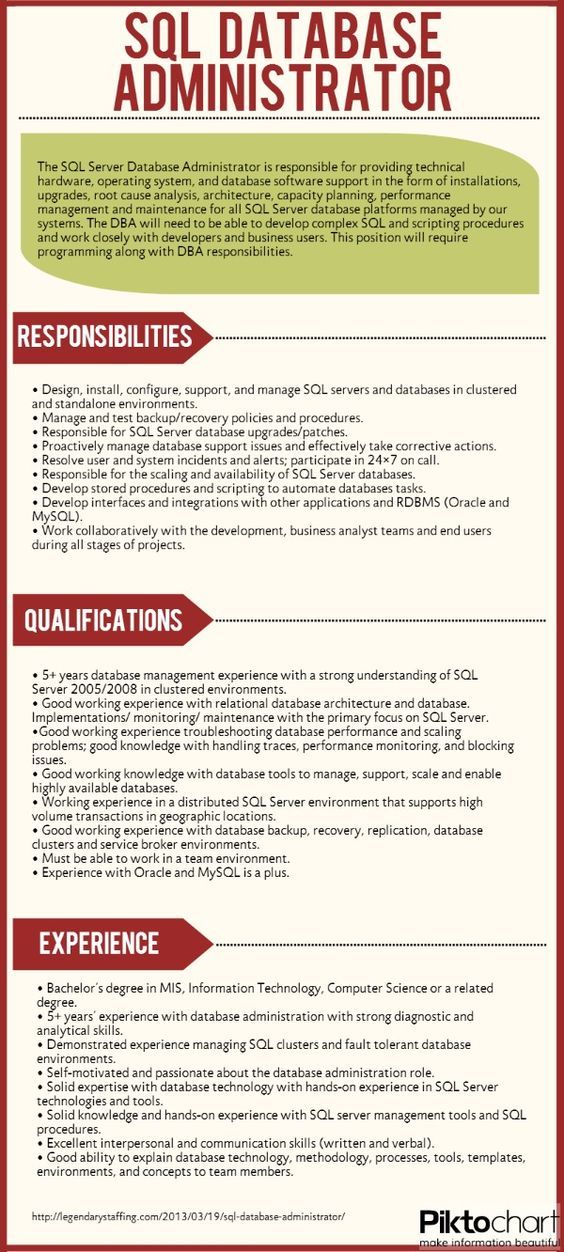A database administrator (DBA) plays a critical role in ensuring the availability, reliability, and security of an organization’s databases. To become a successful DBA, you need to have a strong understanding of database management systems (DBMS), database design principles, and data security. In this article, we will discuss the roadmap to becoming a successful database administrator.
Understanding Database Fundamentals
To become a successful database administrator, it is essential to have a strong understanding of database fundamentals. This includes understanding the different types of DBMS, data models, and data normalization techniques. You need to know how to design, implement, and manage databases effectively.
We Recommend the Following FREE Courses:
Fundamentals of Database Systems
Fundamentals of Data Warehousing
Learning SQL
SQL (Structured Query Language) is the standard language used to interact with relational databases. As a DBA, you need to have a strong understanding of SQL and know how to use it to manage and manipulate data. This includes writing SQL queries, creating tables, and managing database users and permissions.
We Recommend the Following FREE Courses:
Oracle SQL Basics
Developing Applications with SQL, Databases, and Django
Database Design and Modeling
Database design and modeling involve creating a blueprint of the database structure, including tables, relationships, and constraints. As a DBA, you need to have a strong understanding of database design and modeling principles and know how to implement them effectively.
We Recommend the Following FREE Courses:
Oracle SQL Basics
Data Security and Privacy
Data security and privacy are critical aspects of database administration. As a DBA, you need to have a strong understanding of data security principles and know how to implement them effectively. This includes managing user access and permissions, securing data backups, and implementing encryption and other security measures.
We Recommend the Following FREE Courses:
Cloud Data Security
Network Security & Database Vulnerabilities
Performance Tuning and Optimization
Database performance tuning and optimization involve identifying and resolving performance issues in the database. As a DBA, you need to have a strong understanding of performance tuning techniques and know how to implement them effectively. This includes optimizing queries, tuning indexes, and optimizing database configuration parameters.
Disaster Recovery and Business Continuity
Disaster recovery and business continuity planning are critical aspects of database administration. As a DBA, you need to have a strong understanding of disaster recovery principles and know how to implement them effectively. This includes creating backups, implementing failover and disaster recovery solutions, and testing disaster recovery plans regularly.
Cloud Database Administration
Cloud computing is becoming increasingly popular, and many organizations are moving their databases to the cloud. As a DBA, you need to have a strong understanding of cloud database administration and know how to manage databases in a cloud environment. This includes understanding cloud database architectures, security, and performance tuning.
We Recommend the following FREE Courses:
Google Cloud Database Engineer Specialization
Database and Multi-Cloud Assessment with StratoZone
Continuous Learning
Database administration is a constantly evolving field, and as a DBA, you need to keep up with the latest trends and technologies. Continuous learning is essential for staying up-to-date with new DBMS features, security threats, and performance tuning techniques.
Conclusion
Becoming a successful database administrator requires a range of skills, including technical knowledge, data security, disaster recovery planning, and cloud database administration. By understanding database fundamentals, learning SQL, database design and modeling, and continuously learning, you can become a successful DBA. Remember that data security and privacy, performance tuning and optimization, and disaster recovery and business continuity planning are critical aspects of database administration.


